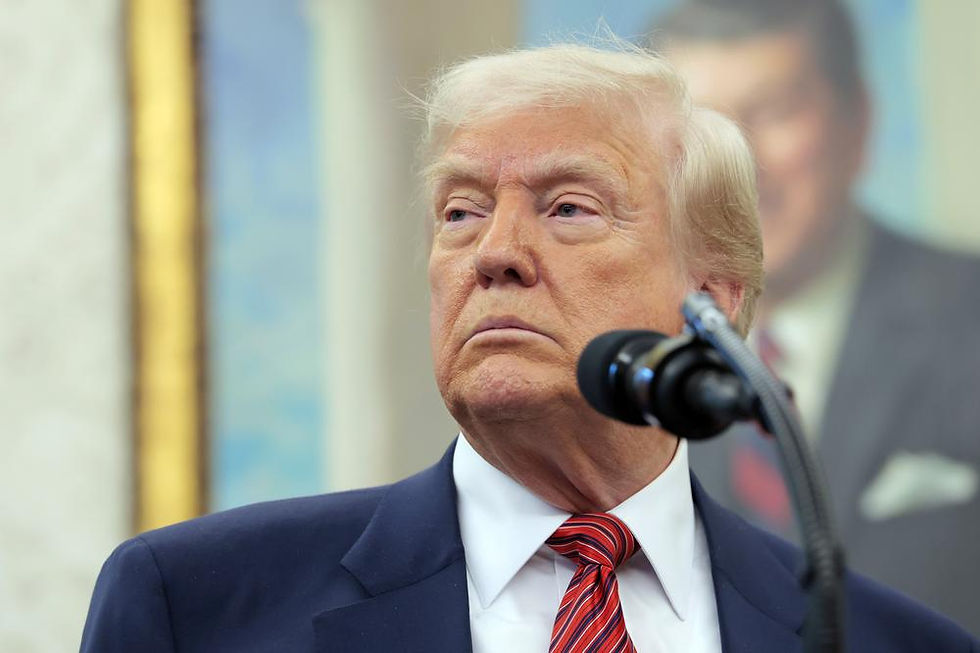Stars Collide: The Political Power Play Between Springsteen and Trump
- israelantonionotic
- May 19
- 3 min read
When Star Power Meets Political Clout: The Celebrity Endorsement Debate in the Age of Trump and Springsteen

In the ever-entertaining arena of celebrity politics, Bruce Springsteen and Donald Trump have once again clashed, drawing attention to the influence of music and entertainment on political campaigns. Following a passionate concert where Springsteen criticized Trump’s administration as “corrupt, incompetent, and treasonous," the President responded with a tirade on social media, raising questions about the legitimacy of endorsements from high-profile figures like Springsteen, Beyoncé, and Oprah Winfrey. Trump’s remarks included a demand for an investigation into whether these entertainers received payments in exchange for their support of Vice President Kamala Harris during her presidential campaign, suggesting that such transactions could be illegal campaign contributions.
In his posts on Truth Social, Trump questioned how much Harris allegedly "paid" Springsteen for his endorsement, an accusation that shocked many in the entertainment world. Trump has long accused celebrities of manipulating the political landscape for their benefit, and his latest outburst seemed to further echo this sentiment. He argued that financial incentives given to entertainers for endorsements were a corrupt practice and claimed that they were part of an overarching effort to artificially inflate campaign crowds. Trump’s scrutinizations included an emphasis on how it’s essential for fair play in campaign financing, suggesting that entertainers like Springsteen should not profit from endorsing political candidates.
However, representatives from Harris’s campaign, including senior adviser Adrienne Elrod, have firmly denied any allegations of impropriety, asserting that no artists or entertainers were paid for their endorsements. The controversy underscores a broader tension between political figures and the celebrities who choose to engage in political discourse. As the details unfolded, it became clear that the financial situations surrounding celebrity endorsements are far more complex than they appear. For instance, while Oprah Winfrey’s production company was reimbursed for logistical costs tied to campaign events, Winfrey clarified that she did not personally receive a fee, emphasizing the importance of compensating the crew and staff that worked on those events.
Despite the pushback from Harris’s camp, Trump's rhetoric continued to resonate within his supporter base, igniting discussions about the ethics of celebrity involvement in politics. Springsteen, undeterred by Trump's threats to silence him, reiterated the significance of speaking out against injustices in America. At a recent concert, he expressed his concern over developments that threaten the nation's democratic foundations and stressed that entertainment and activism often intersect in meaningful ways.
The interplay between politicians and celebrities raises pivotal questions about accountability and ethics. With celebrities wielding substantial influence over public opinion, the blurred lines between advocacy and financial reward become difficult to navigate. Public endorsements from famous personalities can undoubtedly sway voters, which has led to an ongoing debate about the implications of celebrity endorsements—especially when financial elements come into play. This controversy doesn’t only involve endorsements for one campaign; it highlights a systemic phenomenon where celebrities frequently align themselves with political narratives.
In an ironic twist, Trump himself has sought endorsements from various artists, including Kid Rock and Lee Greenwood, suggesting a hypocrisy in his criticisms of others. This points to the intricate relationship politicians maintain with celebrity voices that range from support to outright condemnation. Although Trump may rally against the involvement of entertainers like Springsteen, he simultaneously taps into celebrity culture to galvanize his own base. This duality reflects a broader societal trend where celebrities are both cherished and scrutinized for their roles in political discourse, often serving as conduits for particular ideologies and mobilizing different segments of society toward action.
As the debate unfolds, the question remains: what role should celebrities play in politics? Should their social influence come with the expectation of accountability towards campaign finance laws? The intersection of entertainment and politics appears to be an ongoing saga that will continue to evolve, especially as the landscape shifts leading toward future elections. The reactions from both Trump and Springsteen highlight the challenges and responsibilities this dynamic brings, showcasing how intertwined pop culture has become with the political narrative.
Ultimately, how celebrities choose to navigate their influence speaks volumes not just about their beliefs, but also about the societal values that underpin these interactions. The Springsteen-Trump conflict serves as a striking reminder that in the world of fame and politics—where every statement and tweet can lead to monumental repercussions—celebrities are not merely figures of entertainment but are deeply enmeshed in the fabric of democratic discourse. As events unfold, audiences will undoubtedly watch closely, eager to see how the lines between art, influence, and political engagement evolve in the tumultuous landscape of American democracy.




Comments